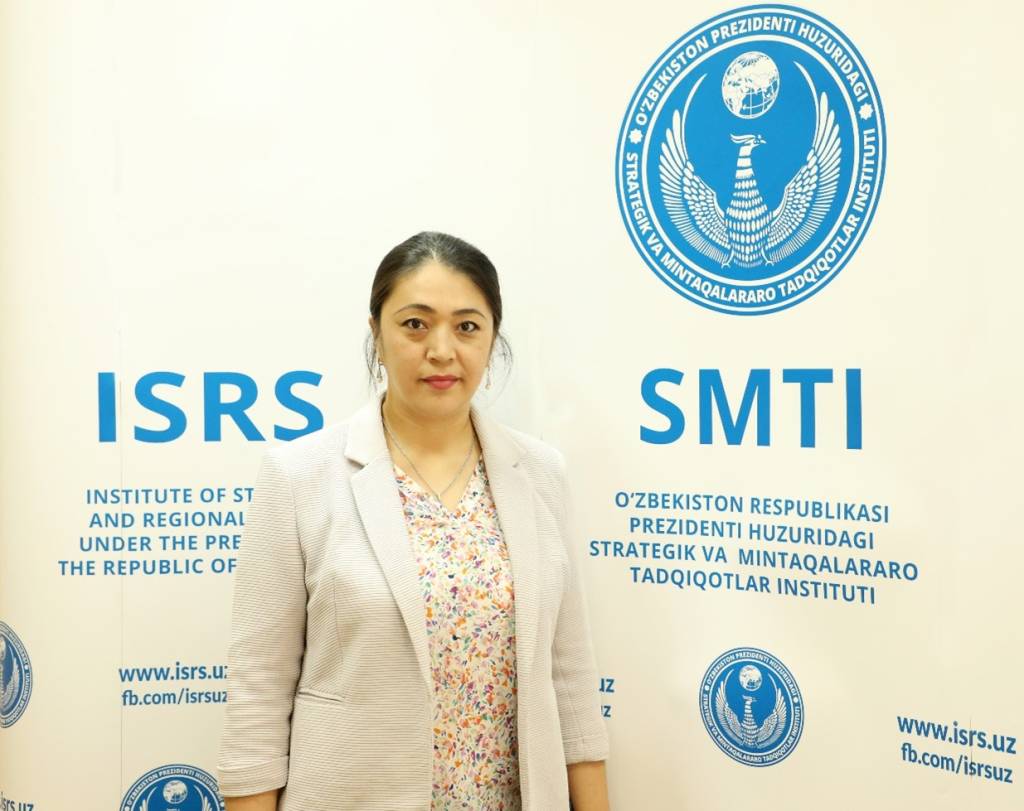Uzbekistan and Italy are strategic partners

It is no exaggeration to note that Italy, as one of the main engines of European integration, demonstrates leadership in bringing Uzbekistan's partnership with the EU to a qualitatively new level. A clear indicator of this is the official visit of President Shavkat Mirziyoyev to Rome, which has historical significance and is a landmark event in the dynamically developing relations between Uzbekistan and Italy.
This is evidenced by signing a solid package of documents, including 11 agreements covering all areas of cooperation, from politics to cultural and humanitarian interaction.
At the same time, the signing of the Declaration on the Establishment of Strategic Partnership between the two countries became undoubtedly an important event. The document defines the priorities of long-term cooperation and is designed to promote collaboration in all areas, meeting the vital interests of Uzbekistan and Italy. This will undoubtedly give a progressive character to the process of comprehensive mutual development.
It is gratifying to note that over the past 31 years, a solid foundation of mutually beneficial and promising cooperation has been created. Especially in recent years, inter-parliamentary ties have intensified, and contacts at the level of ministries and departments and between the business circles of Uzbekistan and Italy are dynamically expanding.
The key driver of the comprehensive partnership is the developing institutional framework, including the activities of joint intergovernmental working groups on trade, economic and industrial cooperation, export credits, cooperation in the fight against organized crime and terrorism, Italy – Uzbekistan Chamber of Commerce, Italy – Central Asia Interparliamentary Friendship Group and Cultural Exchange Programs.
In this regard, during the talks in Rome, an essential part of the political dialogue between the leaders of our countries became the interaction of Tashkent and Rome on issues of mutual interest on the international and regional agenda. The parties confirmed the convergence of views and approaches to strengthening peace, security, and stability.
It is worth emphasizing that Italy has been essential in ensuring regional security and sustainable development of Central Asia for more than thirty years. Rome fully supports the European Union Strategy for Central Asia, adopted in 2007 and updated in 2019. This is also facilitated by the recent approval of a new position of the Foreign Ministry's Special Representative for Central Asia, which is of key importance for building ties between Italy and the countries of the region.
Moreover, since 2019, the parties have been interacting in the “1+5” format at the countries’ Foreign Ministries level, a unique platform for cooperation between Central Asia and the EU states. The main interaction issues are strengthening trade-economic and energy relations, sustainable development, and cultural exchange.
During the talks in Rome, the Italian side separately noted the pragmatic regional policy of Uzbekistan. Broadly supporting Uzbekistan's efforts to strengthen the atmosphere of partnership, good neighborliness, and trust in Central Asia, Italian Prime Minister Giorgia Meloni called for developing the Italy – Central Asia cooperation format.
Particular emphasis is placed on the growing strategic importance of the region. Italian experts note that Central Asia, including Uzbekistan, along with steady economic growth and significant human potential, has a powerful resource and raw materials, production base, and high human potential, creating the necessary conditions for developing industrial cooperation on an innovative and technological basis. In this regard, Rome is interested in countries' stable, sustainable development and advocates activating a pan-European policy in this region.
Uzbekistan considers Italy an example of a successfully developed industrial country with a socially oriented market economy. This explains Tashkent's interest in promoting cooperation projects with leading Italian companies and enterprises in trade, investment, high technology, industry, agriculture, and other industries.
Uzbekistan is also interested in intensifying cooperation with Italy within the framework of international organizations such as the UN, the European Union, the OSCE, and other global platforms. Moreover, being an authoritative member in the G7 and G20 formats, Rome could help bring to the general public the initiatives put forward by Uzbekistan and the countries of the region and their support on global platforms.
I would like to emphasize that Italy supports Uzbekistan's initiative to create an international negotiating group on Afghanistan under the auspices of the United Nations to develop a unified policy, unite the efforts of all interested countries to gradually resolve issues of ensuring human rights, socio-economic assistance, involving the country in regional economic ties, combating terrorism and drug trafficking.
Regarding Afghanistan, Italy initially stands for providing support to the country’s population, focusing on priority areas such as the protection of civilians, the delivery of humanitarian supplies, and the settlement of the migration crisis. In particular, in 2021, with the help of Tashkent and other neighboring countries, Rome evacuated more Afghan citizens from Kabul than any other EU country (almost 5 thousand).
In conclusion, I would like to note that Uzbekistan – Italy Summit at the highest level demonstrated a high level of mutual trust and the willingness of the parties to increase practical cooperation. This, of course, will be a turning point and will end more than 20 years of pause in direct communication between the two countries' leaders. In turn, specific agreements will contribute to the further sustainable and stable development of our states and, as a result, will further strengthen strategic partnerships and create conditions for bringing our interaction to a new qualitative level.
Shakhnoza Qodirova,
Chief researcher at ISRS under the President of the Republic of Uzbekistan






